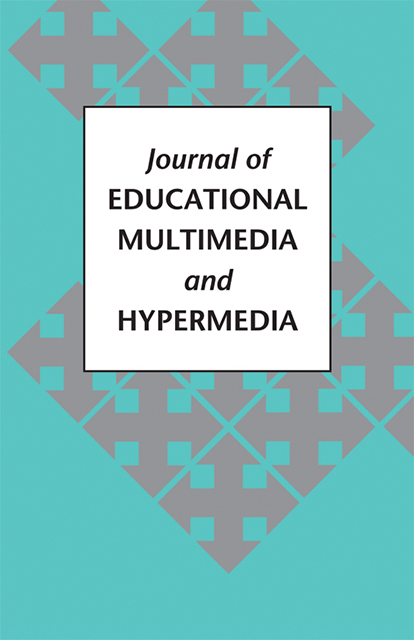
Use of Hypermedia in One Middle School: A Qualitative Field Study
Article
Abigail Garthwait, University of Maine, United States
Journal of Educational Multimedia and Hypermedia Volume 13, Number 3, ISSN 1055-8896 Publisher: Association for the Advancement of Computing in Education (AACE), Waynesville, NC USA
Abstract
The contribution of qualitative research consists of "description, verification (of existing theories, hypotheses, generalizations, or practices), evaluation or prescription, as well as understanding" (Glesne & Peshkin, 1992, p. 16). This qualitative study examined the dynamics and complexities which occur in the natural setting of a seventh grade classroom as students learn to use a hypermedia program (HyperStudio). Data collection techniques included field observations, student and teacher interviews, surveys and student work. The author viewed the data through the lens of Dewey's methodological barriers to education, and found three major results. Marginal students were motivated to construct creative and innovation projects in a different way than their honor-roll peers. The tools available in software programs can interact with a student's original purpose to produce a more innovative project than initially conceived. Additionally, this study found that the absence of substantive school-wide conversations involving the computer teacher appear to limit the motivational benefits afforded by the technology.
Citation
Garthwait, A. (2004). Use of Hypermedia in One Middle School: A Qualitative Field Study. Journal of Educational Multimedia and Hypermedia, 13(3), 219-243. Norfolk, VA: Association for the Advancement of Computing in Education (AACE). Retrieved August 13, 2024 from https://www.learntechlib.org/primary/p/5129/.
© 2004 Association for the Advancement of Computing in Education (AACE)
Keywords
References
View References & Citations Map- Dewey , J . (1902) . The child and the curriculum . Ch icago : Un ivers i ty of Ch icago .
- Harel, I. (1991). Children designers: Interdisciplinary constructions for learning and knowing mathematics in a compu ter-r ich school. Norwood, NJ: Ablex.
- Lehrer , R . (1993) . Authors of knowledge: Patterns of hypermedia design .
- Papert, S. (1993). Children ’s machine: Rethinking school in the age of the computer. New York: Basic.
- Stover, D. (1989 , May). Hypermedia. Popular Science, 234 , 122-124. Turner, S.V. , & Dipinto , V.M. (1992). Students as hypermedia authors: Themes emerging from a qualitative study. Journal of Research on Computing in Education, 25(2), 187-199.
- Weller , H . (1996) . Assessing the impact of computer-based learning in science . Journal of Research on Computing in Education , 28(4), 461-485.
These references have been extracted automatically and may have some errors. Signed in users can suggest corrections to these mistakes.
Suggest Corrections to ReferencesCited By
View References & Citations Map-
A Computer Based Education (CBE) Program for Middle School Mathematics Intervention
Bill Gulley, Sunnyside Unified School District #12, United States
Journal of Computers in Mathematics and Science Teaching Vol. 28, No. 4 (October 2009) pp. 381–404
These links are based on references which have been extracted automatically and may have some errors. If you see a mistake, please contact info@learntechlib.org.
